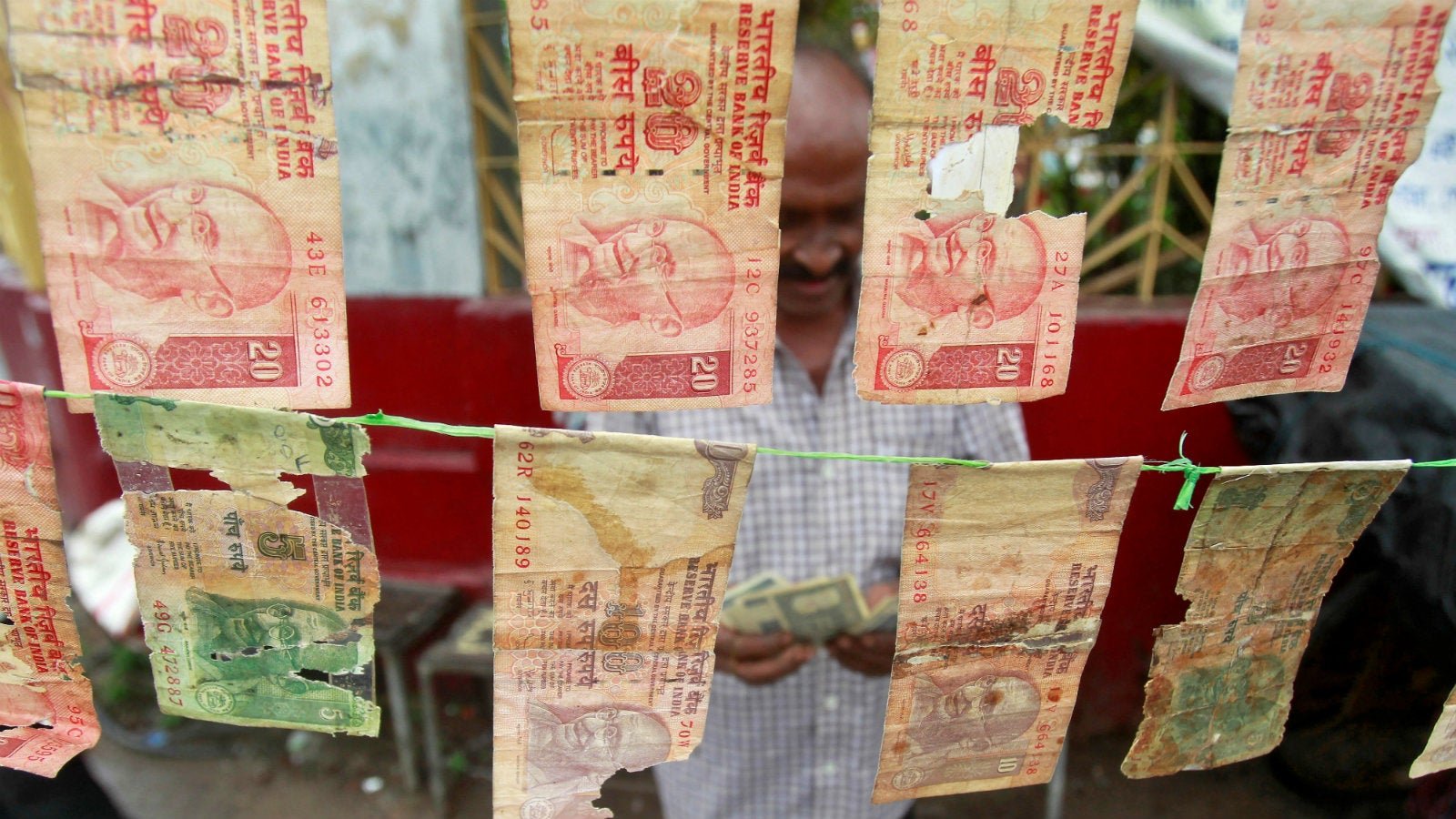India’s demonetisation plan is hurting micro-finance firms that lend to its poor
A cash crunch in Asia’s third-largest economy is increasingly becoming a challenge for microfinance firms. The Narendra Modi government’s recent ban on Rs500 and Rs1,000 currency notes to deal with tax evasion and counterfeiting has suddenly limited money supply in the economy. Indians are rushing to banks and post offices to get their now-illegal notes exchanged before the Dec. 30 deadline.


A cash crunch in Asia’s third-largest economy is increasingly becoming a challenge for microfinance firms. The Narendra Modi government’s recent ban on Rs500 and Rs1,000 currency notes to deal with tax evasion and counterfeiting has suddenly limited money supply in the economy. Indians are rushing to banks and post offices to get their now-illegal notes exchanged before the Dec. 30 deadline.
For microfinance firms, which lend to the poor and marginalised, there’s also the risk that repayments could be delayed, a Nov. 17 report (paywall) by India Ratings and Research says. The credit rating agency has warned that if the money supply isn’t balanced by March 2017, these firms could find themselves in jeopardy. They typically deal in small sums of loans, disbursed and repaid in cash.
“We expect microfinance institutions (MFIs) borrowers to reprioritise their expenses on account of a cash flow mismatch in the next few weeks,” the India Ratings report said. “This would lead to an increase in one-month overdues of many MFIs. If money flow does not fully normalise by the fourth quarter of 2017, tier 1 capital of few MFIs could near regulatory minimum levels.”
Currently, there are some 60,000 microfinance firms in India, serving some 40 million customers. The industry grew 60% in the 2015 to 2016 fiscal years to Rs54,329 crore ($7.9 billion).
Firms have already started feeling the pain. “The installments are collected on a weekly basis and this has taken a plunge given the fact that agents cannot collect Rs500 or Rs1,000 notes from them. If this continues for some more time, there will be a steady rise in the number of defaulters,” Chandrasekhar Ghosh, chairman and managing director of Bandhan, a microfinance group, said on Nov. 16.
One silver lining to this turbulence, however, is that unbanked people will now be forced to open bank accounts and do their financial work via the formal channels. This would make loan disbursements and collections easier.
The India Ratings report expects “banking habits to improve in the long term, as currency flow resumes.”